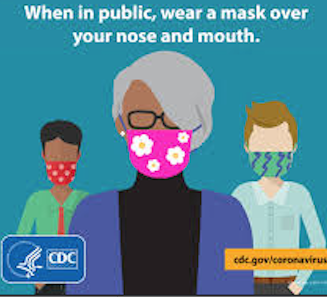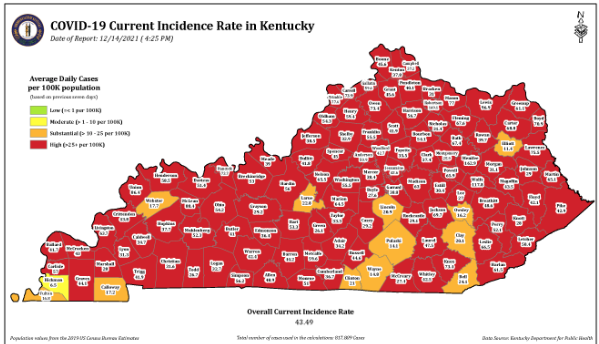As COVID cases enjoy another surge, and the vulnerability of those without vaccines is cause for concern, the CDC has developed some ways to talk to friends and loved ones about what may be a sensitive subject
Here are some tips.
Begin from a place of curiosity and respect
Maybe you don’t know how the conversation is going to go, and this makes you uneasy. Rather than taking a judgmental approach to the conversation, go in with genuine curiosity, empathy, and respect. Respect and vulnerability typically encourage mutual respect and shared vulnerability. Respect the other person’s point of view and expect them to respect yours.
Focus on what you’re hearing, not on what you are saying
Don’t spend too much time planning what you’re going to say. Tough conversations rarely go as planned, and anyway, maybe you’ll be surprised, and the conversation won’t be difficult. Focus on listening, reflecting, and observing. Ask neutral, supportive questions: “I see our county is still in the red zone. Do you find this concerning? I know I do.” Then listen. Pause. Be interested and engaged. Gather as much detail as possible. Ask follow-up questions without judgment. Your attention and neutrality will encourage others to elaborate.
Ask permission to share information
Once you understand your friend’s or family member’s question or concern, ask if you can provide some information and tell them where you get information you trust. If they agree, they will be more willing to listen to you instead of feeling like you’re pushing unwanted information on them. Sometimes, sharing quick, accurate answers to common concerns your family or friends might have can go a long way toward moving someone from worry to confidence. If you don’t know the answer to their questions, consider offering to help look for information.
Share your experience
Be prepared to answer if you’re asked if you’ve been vaccinated, if you were nervous about getting the vaccine, if you felt bad for a day or two after taking the vaccine, whether you would have a child vaccinated when doses for the 5–11 age range are approved, etc. Talking with others honestly and with respect is mutually rewarding.
Help them find their own reason to be vaccinated
Everyone who chooses to get vaccinated does it for a reason – to protect their family, to protect their children, to be less anxious, to visit their parents, or to get back to activities like seeing friends, resuming work, or returning to school. After addressing concerns with empathy and facts, you can steer the conversation from “why not” to the important reasons that matter to them – their “why.” You may choose to share your reasons for getting vaccinated or discuss common goals you may have, like visiting with each other safely. The reasons someone may choose to get vaccinated will always be those that are most compelling to them personally.
Don’t put it off
If your response to conflict is ordinarily not to confront it – not much in life is worth arguing about or losing a friendship over – the global pandemic introduces reason to avoid putting off the conversation. Talking about it now can lead to a commitment to get vaccinated or to think ahead to the permission that an adult or guardian will need to make on behalf of a child or youth aged 17 or younger. Plan the general outline of what you want to convey and the outcome you desire. Then, have the conversation and plan to move on.
Expect a positive outcome
Rather than filling yourself with dread and telling yourself, “This is going to be a disaster,” or “She’s never going to speak to me again,” tell yourself the conversation will result in an improved relationship. Consider going into the discussion by saying something along the lines of, “We’ve known each other for years, and something I’ve always appreciated about you is how comfortable I feel saying anything to you that’s on my mind. Got a few minutes to share what your thoughts are about taking the vaccine?”
If the conversation goes well, encourage action
Taking at least one step toward getting vaccinated can help increase the likelihood that someone will follow through. Offer to assist in setting an appointment to get vaccinated. Pick a nearby date in the future to follow up if they are not ready to make the appointment. If possible and desired, accompany them to the vaccination appointment.
Kentucky COVID STATS/Tuesday
Kentucky reported 2,559 new COVID cases on Tuesday, with 665 of those being under 18. There were 14 new deaths.
Current positivity rate is 8.79%.
There are 1,216 Kyians hospitalized with 316 in ICUs and 175 on ventilators.
Kenton County reported 70 new cases, Boone County 48, and Campbell County 45.
Since the beginning of the pandemic, Kentucky has had 817,818 cases and 11,676 Kyians have died.




















